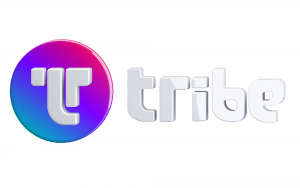TrustNet Score
The TrustNet Score evaluates crypto projects based on audit results, security, KYC verification, and social media presence. This score offers a quick, transparent view of a project's credibility, helping users make informed decisions in the Web3 space.
Real-Time Threat Detection
Real-time threat detection, powered by Cyvers.io,
is currently not
activated
for this project.
This advanced feature provides continuous monitoring and instant alerts to safeguard your assets from potential security threats. Real-time detection enhances your project's security by proactively identifying and mitigating risks.
For more information, click here.
Summary and Final Words
No crucial issues found
The contract does not contain issues of high or medium criticality. This means that no known vulnerabilities were found in the source code.
Contract owner cannot mint
It is not possible to mint new tokens.
Contract owner cannot blacklist addresses.
It is not possible to lock user funds by blacklisting addresses.
Contract owner can set high fees
Contract owner is able to set fees above 25%. Very high fees can also prevent token transfer.
Token transfer can be locked
Owner can lock user funds with owner functions.
Token cannot be burned
There is no burning within the contract without any allowances
Ownership is not renounced
The owner retains significant control, which could potentially be used to modify key contract parameters.
Scope of Work
This audit encompasses the evaluation of the files listed below, each verified with a SHA-1 Hash. The team referenced above has provided the necessary files for assessment.
The auditing process consists of the following systematic steps:
- Specification Review: Analyze the provided specifications, source code, and instructions to fully understand the smart contract's size, scope, and functionality.
- Manual Code Examination: Conduct a thorough line-by-line review of the source code to identify potential vulnerabilities and areas for improvement.
- Specification Alignment: Ensure that the code accurately implements the provided specifications and intended functionalities.
- Test Coverage Assessment: Evaluate the extent and effectiveness of test cases in covering the codebase, identifying any gaps in testing.
- Symbolic Execution: Analyze the smart contract to determine how various inputs affect execution paths, identifying potential edge cases and vulnerabilities.
- Best Practices Evaluation: Assess the smart contracts against established industry and academic best practices to enhance efficiency, maintainability, and security.
- Actionable Recommendations: Provide detailed, specific, and actionable steps to secure and optimize the smart contracts.
A file with a different Hash has been intentionally or otherwise modified after the security review. A different Hash may indicate a changed condition or potential vulnerability that was not within the scope of this review.
Final Words
The following provides a concise summary of the audit report, accompanied by insightful comments from the auditor. This overview captures the key findings and observations, offering valuable context and clarity.
Ownership Privileges
- Include/Exclude wallets from rewards and fee
- The owner can set the fee to 100% or more
- Set max transaction amount to any arbitrary value including zero and may lock user funds
- Allow Trading, but cannot disallow it
- Set liquidity Threshold to any arbitrary value
- Set, marketing, dev, and Burning address
- The creator address can withdraw any type of token from the contract balance.
Note - This Audit report consists of a security analysis of the TRIBEX smart contract. This analysis did not include functional testing (or unit testing) of the contract’s logic. Moreover, we only audited one token contract for the TRIBEX team, other contracts associated with the project were not audited by our team. We recommend investors to do their own research before investing.
Files and details
Functions
public
/
State variables
public
/
Total lines
of code
/
Capabilities
Hover on items
/
Findings and Audit result
medium Issues | 1 findings
Pending
#1 medium Issue
Fees can be 100% or more
The owner can set tax up to 100% or more which is not recommended as it may lead to the loss of users' funds
low Issues | 4 findings
Pending
#1 low Issue
Local variables shadowing (shadowing-local)
Rename the local variables that shadow another component.
Pending
#2 low Issue
Missing Events Arithmetic (events-maths)
Emit an event for critical parameter changes.
Pending
#3 low Issue
Missing Zero Address Validation (missing-zero-check)
Check that the address is not zero.
Pending
#4 low Issue
Uninitialized state variables (uninitialized-state)
Initialize all the variables. If a variable is meant to be initialized to zero, explicitly set it to zero to improve code readability.
optimization Issues | 2 findings
Pending
#1 optimization Issue
State variables that could be declared constant (constable-states)
Add the `constant` attributes to state variables that never change.
Pending
#2 optimization Issue
Public function that could be declared external (external-function)
Use the `external` attribute for functions never called from the contract.
informational Issues | 3 findings
Pending
#1 informational Issue
Functions that are not used (dead-code)
Remove unused functions.
Pending
#2 informational Issue
Function initializing state variables (function-init-state)
Remove any initialization of state variables via non-constant state variables or function calls. If variables must be set upon contract deployment, locate initialization in the constructor instead.
Pending
#3 informational Issue
Unused state variables (unused-state)
Remove unused state variables.
